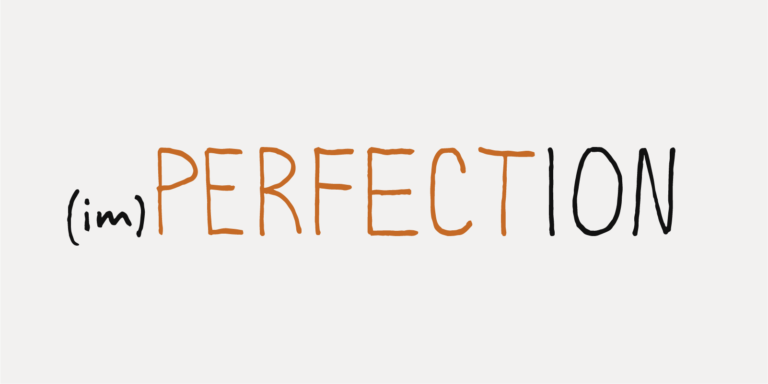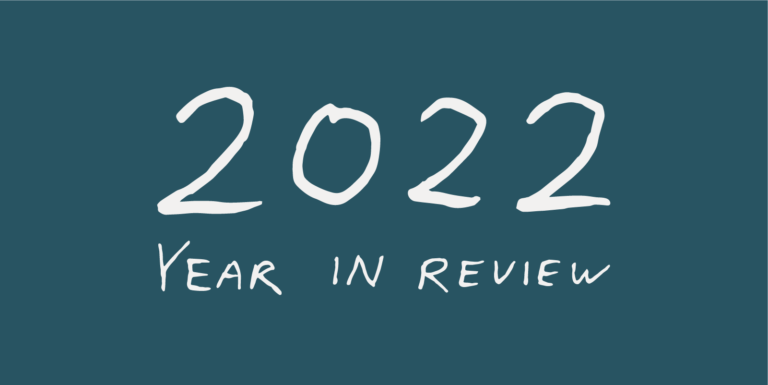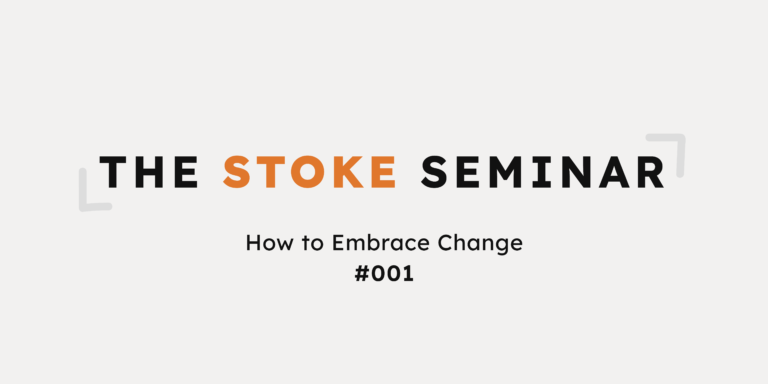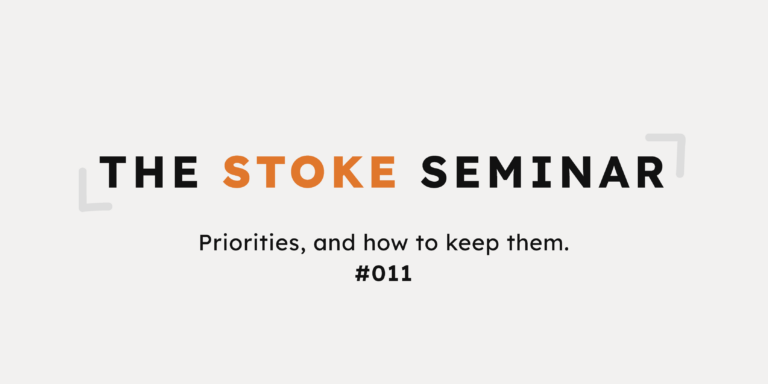Deadlines: The Procrastination Killer
(FYI: The waitlist for the Genius Journal is officially open! Sign up to be the first to hear about details of the course launch.)
Procrastination is the thief of progress.
Without a specific timeframe for completing a project, it may continue to drag on for months or years (instead of days or weeks).
And there are two types of procrastinating:
- Small scale (waiting to work on an assignment until the last minute)
- Large scale (waiting to do what you love once you “have more time”)
Both are dangerous.
And it’s a shame that we often hesitate to do what we feel called to do, making up a variety of excuses as to why we can’t do it.
But setting deadlines might be the boundary you need to start taking more action, more often.
Deadlines Kill Procrastination
This week, I finally spent the time and effort adding each of my previous essays from the Stoke Seminar to my website.
Inevitably, I read nearly all of the these essays, and was reminded of how much I’ve learned and grown because of this project.
While combing through these previous newsletters, I was reminded of an important lesson I’ve learned as a result:
Deadlines kill procrastination.
Let me explain.
My goal from the beginning of this project was to share a new email each Saturday.
It felt like an achievable goal that wouldn’t be too much of a burden.
Spend an hour here and an hour there – writing the essay, refining it, and sharing it with my small, dedicated audience (which consisted of ~30 people for the first several months).
What I didn’t realize at the time – was how much this project would impact me personally and creatively.
I was shocked looking back on these emails I’ve sent over the past 23 months, realizing I’d nearly forgotten about some of them.
This is simply because I’ve now created such a deep backlog of work.
It feels really good knowing that I’ve been putting things out into the world that would have otherwise been sitting stagnant in my notes app, never seeing the light of day.
And although creating for yourself is wonderful – I’ve come to learn that sharing what you create with others is what really matters.
“Beauty is in the eye of the beholder” – and artists are typically their own harshest critic.
If your eyes are the only ones that ever see what you create, you may be holding something back from someone who may benefit from your work.
Sharing your work with the world allows that beauty to shine for others to see, learn from, and appreciate.
You have no idea how much of a positive impact your work could have on someone if it’s never shared.
And that’s why I encourage each person to:
- seek their stoke (aka follow their curiosity)
- share their stoke (because fulfillment is found in positively impacting others)
If it’s not seen, it can’t be appreciated.
A Simple Hack To Overcome Perfectionism
For years I procrastinated on sharing my work.
I masked this procrastination with perfectionism, always telling myself that my work wasn’t quite good enough to compare with others.
“It could always use a LITTLE more refining…”
But finally I realized how silly this thinking was. Instead, I focused on an opposing principle:
Quantity OVER quality.
(Here’s an essay I wrote about this in 2022, just before starting this newsletter. This mindset changed my creativity completely and allowed me to finally start sharing my work)
The idea was to create and share as many things as I could. No holding back, no second guessing.
Part of that effort was creating and sharing this weekly newsletter.
This set the boundary for me. It set a deadline that I was accountable to maintain.
And that made all the difference in the world.
Setting that deadline killed my procrastination (and perfectionism).
Because I was expected to release a new email each week – I only had a limited amount of time to spend curating it.
If I waited to work on the email until Friday afternoon, I would whip up something thoughtful and schedule it for the next morning.
Heck, if I didn’t have something prepared until Saturday morning (when the email was supposed to be sending out), I’d wake up early and put something together, releasing it later that day or on Sunday.)
I no longer had any excuses to make.
My deadline was set to send out a new email every Saturday… so that’s what I did.
Using Procrastination To Your Advantage
Creating is supposed to be messy.
It’s not always going to go according to plan. It’s not always going to be perfect. You’re not always going to have sufficient time to do exactly what you envisioned.
But I’ve learned over the past 23 months that it’s the nitty-gritty minute details that used to hold me back.
And worrying about those insignificant things (that 99% of people won’t notice anyway) is what used to paralyze my ability to share.
Don’t make the same mistake that I did.
- Set deadlines for any and every project.
- Stay organized with due dates, projects, and routines.
- Use planners, notebooks, and journals to keep yourself accountable.
(The Genius Journal will share my favorite notebook method for doing so. Join the waitlist here)
If you need to finish an ongoing, never-ending project, set a deadline.
Once you set this deadline (and hold yourself accountable to it), you can get a large amount of work done in a short amount of time.
This is how you use procrastination to your advantage.
Setting deadlines will allow you to be productive in spurts.
You might not be lazy – you just care about doing great work.
And if your work doesn’t meet your abnormally high standards, it’s common for you to “procrastinate” on doing that work, because you want it to be the best it can be.
But my advice is to set boundaries that force you to finish that work, rather than waiting around for it to be “ready” someday.
Because that day will never come.
Unless… you set a due date.
How To Do More of What Matters To You
If I were to start over, here’s how I’d recommend doing MORE of the thing you want to do more of.
This goes for creating in any capacity, to exercising, to socializing, and beyond.
It’s applicable to nearly every aspect of life.
Step 1) Define what you want to do
The first step is deciding what you want to do more of.
- What skill do you want to become proficient in?
- What activity do you want to do more often? (with yourself, your spouse, or your kids)
- What relationship do you want to nurture?
Decide what thing you truly want to be more consistent with. You have to truly care about it – otherwise you’ll fail after the first week.
Find the thing(s) you’re stoked about doing and develop a deep understanding of why it’s worth committing to.
Step 2) Set a deadline
Once you know what is it that you want to do, set up boundaries.
Most people think they need more freedom – but in reality they need more discipline.
If you decide you can only do (X) on Tuesday afternoons, that removes the need for deciding when you want to do that thing throughout the week.
Instead of wondering if you could do it this day, that day, or the day after – you just know that that’s what you do on Tuesday afternoons. No need to second guess it, you’ve already chosen the time.
Decide when, and how often you’re going to do the thing.
- How many times per week / month?
- What day(s) of the week?
- How much time will you spend on it?
My personal example with the Stoke Seminar: I will send one email out on Saturday mornings, and I will write/prepare the essay on Thursday mornings for 2 hours.
Step 3) Stick to it
The final step is consistency. Because if you don’t stick to it long enough – your effort may be wasted.
Going to the gym 3x/week for two months is great – but what if you stuck to it for 12 months?
That extension of consistency may bring the muscle gains or weight loss you are looking for.
(☝️ this one is a reminder for myself haha)
Depending on what it is you’re trying to do more often, remember that you may not have to stick with it forever.
Starting is the hardest part. Sticking to it week after week eventually becomes easier.
Decide how long you want to stick with the activity.
- Will you do this for one year? Two? Five?
- Will you do it for one month? Three? Six?
- Will it last for a certain season? (E.g. Summer, winter, etc)
Setting an “end goal” is a good reminder that things change. It may not have to be a “forever” thing.
Thinking in this way can help you feel less overwhelmed, realizing that you just need to do it for a set amount of time, and there’s an end in sight.
Procrastination will continue until you schedule your important activities.
Set a deadline. Add it to the routine. Choose a due date.
Once that boundary is set, you’ll find yourself doing more of the things you typically procrastinate on.
You’ll look back and appreciate how much of your work you’ve shared, how much growth you’ve had at the gym, or how many times you grabbed coffee with a friend.
Q: What’s one thing you can add to your schedule this week that you’ve been waiting to do?
Thanks for reading, friends!
Just a reminder that my first course, The Genius Journal, is officially in the works. Join the waitlist here.
And as always – stay stoked!
–Eric Pfohl




